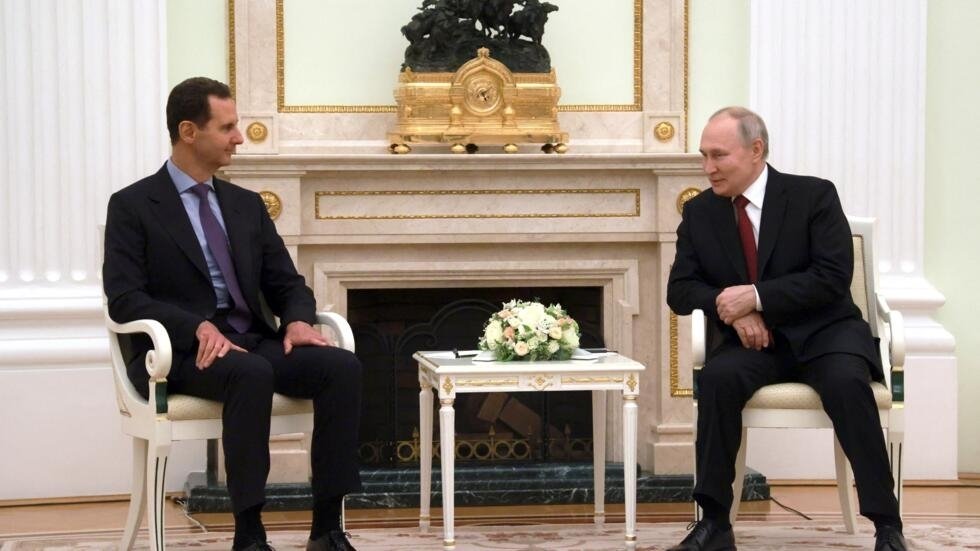Russian President has congratulated his Syrian counterpart, Bashar Assad, on the 80th anniversary of diplomatic relations between the two countries and reassured him of Russia’s support for Syria’s sovereignty, unity and territorial integrity.
“I would like to reiterate that Russia will continue supporting the Syrian government in its efforts to defend the country’s state sovereignty, unity and territorial integrity, ensure national security and political stability. We are convinced that the further development of the entire spectrum of Russian-Syrian ties is in the interests of our peoples and will help consolidate peace and stability in the region and the entire word,” Putin said in a telegram that was posted on the Kremlin website.
Putin noted that over the past decades Moscow and Damascus have accumulated a vast experience of bilateral cooperation in various spheres and have reached considerable success in the fight against international terrorism in Syria.
“I wish you good health and every success, and wellbeing and prosperity to the Syrian people,” the Russian president emphasized.
Diplomatic relations between the former Soviet Union and Syria were established on July 21, 1944. The two countries signed the Treaty of Friendship and Cooperation in 1980. In 1991, Syria recognized Russia as a successor to the Soviet Union.
Relations between Russia and Syria downgraded considerably after the collapse of the former Soviet Union, but in the late 1990s and the beginning of the 2000s relations between the two countries invigorated. In 1999, Syrian leader Hafez Assad paid an official visit to Russia and his son Bashar Assad, who became Syria’s president in 2000, paid a state visit to Moscow in January 2005. His talks with Putin yielded a joint declaration on the further development of relations of friendship and cooperation between Russia and Syria. The first-ever visit to Syria by a Russian head of state (including the Soviet era) was paid by Dmitry Medvedev, the then Russian president, in May 2010. Putin visited Syria in the capacity of the Russian head of state in 2017 and 2020.
Source: TASS



